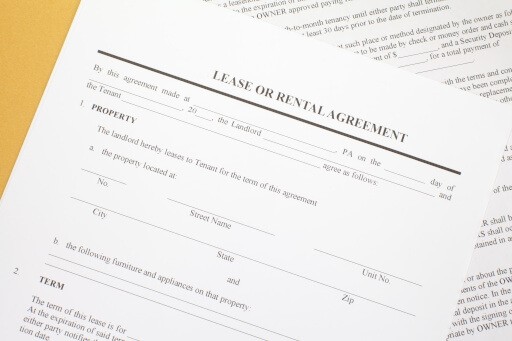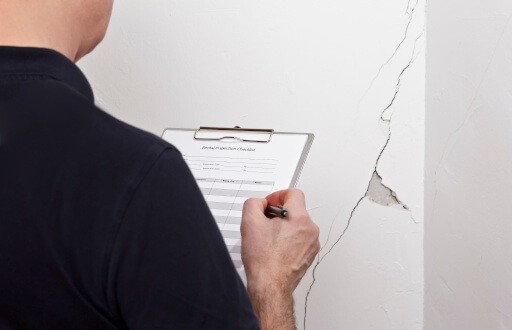
There comes a point in every lease when tenants must decide whether to renew or not renew. While this decision can take time, it’s not something that landlords can afford to wait on. This is where a 60-day notice of non-renewal can come into play.
Receiving a 60-day notice of non-renewal is crucial for your rental business. When a tenant does not renew, you need ample time to plan your next move. However, having this grace period is only possible when given the proper heads-up from your tenant.
In this article, we’ll discuss the importance of requiring a 60-day notice of non-renewal from tenants and how it benefits landlords. Here are some topics we’ll cover:
- Understanding the basics of non-renewal notices
- How to write a non-renewal clause in a lease agreement
- Benefits of a 60-day non-renewal notice
- How to remind tenants of the 60-day notice period
- How guaranteed and automatic renewals work
- Penalties for not giving a 60-day notice
- How to improve tenant retention to avoid non-renewals
What Is a 60-Day Notice of Non-Renewal?
A 60-day notice of non-renewal, also known as a notice to vacate, is a formal statement issued by a tenant or landlord to inform the other party that their lease is ending. This notice typically comes as a letter and is delivered to the recipient at least 60 days prior to the end of a lease. For example, if your tenant’s lease ends on June 30th, they must provide their written notice of non-renewal by April 30th.
A 60-day notice provides both tenants and landlords with clarity, giving each party enough time to properly prepare for the transition. For a tenant, this means finding a new place to live. For a landlord, this transitional period allows them to find a new tenant or create an agenda for a planned vacancy period. Requiring a 60-day notice period also ensures that both parties are aware of the lease end date, avoiding any confusion surrounding move-out dates or potential holdovers.
How to Enforce a 60-Day Notice of Renewal Requirement
Including a non-renewal clause in your lease agreement is the best way to enforce a 60-day notice rule. This clause should explicitly outline how and when you’d like to be alerted of non-renewal, leaving no room for misunderstandings from either party.
Check out this example of non-renewal clause in a lease agreement:
RENEWAL. This lease agreement is not constructed to be automatically renewed at the end of the term for which drawn, however, the intent to renew this agreement by the Tenant(s) will be assumed. All parties will need to sign a new agreement in order to activate a renewal term. If Tenant(s) intends to vacate the Premises at the end of the lease term, Tenant(s) must give at least sixty (60) days’ written notice prior to the end of this lease. If sixty (60) days notice of non-renewal is not given prior to lease term, Tenant(s) are responsible for the equivalent rent amount due for the sixty (60) days after notice is given, even though this lease does not automatically renew.
Including a non-renewal clause in your lease agreement sets clear expectations and responsibilities for both you and your tenant. If you create your lease with Apartments.com, you can customize your lease to include a non-renewal clause. Additionally, you can take advantage of our state-specific leasing templates, ensuring your lease is compliant with state laws and jurisdictions.
Why Is a 60-Day Notice Beneficial for Landlords?
There’s nothing worse than being left high and dry by a long-term tenant. This can happen when an occupant breaks their lease early or, in the case of non-renewals, does not provide enough time for you to fill your vacancy. This is why we recommend enforcing a 60-day notice period, as it will provide several benefits to your rental business, including:
Provides time for tenant turnover
If you’ve ever had a tenant move out, you know how stressful tenant turnover can be. This involves preparing your property for its next occupant, which means cleaning the unit, repairing property damage, advertising the rental, and absorbing the rental costs while the property is vacant. Though stress-inducing and not to mention expensive, tenant turnover can be manageable when given proper notice. A 60-day notice period gives you time to calmly complete your turnover checklist, from making repairs to finding a new tenant.
Reduces financial loss
Getting a proper heads-up from your tenant allows for better financial planning. If you know your property will be vacant, you can plan accordingly to minimize your rental income losses. For example, you can start marketing your rental as soon as you receive notice, giving yourself ample time to find a qualified tenant. Then, hopefully, you’ll have a tenant ready to move in before your current occupant has even packed a moving box.
Promotes good relationships with tenants
Requiring a 60-day notice of non-renewal creates open communication between you and your renters. This promotes trust and transparency, shows that you value each other’s time, and overall fosters a positive relationship between both parties. Even if your tenant chooses not to renew, this notice period gives you time to thank them for their tenancy and address any outstanding issues before they depart.
How to Remind Tenants of the 60-Day Notice Period
Although some renters will be familiar with the 60-day notice of non-renewal, this won’t be the case for everyone. Perhaps your tenant overlooked the lease clause, or maybe they are just first-time renters. Regardless, it’s important to remind your renters when their 60-day deadline is approaching. The best rule of thumb is to alert renters of their 60-day notice period at least 70-75 days prior to the end of their lease. This provides tenants with about two weeks to make a decision and alert you accordingly.
Here's an example of how you can remind your tenant about their 60-day notice:
Hi [Tenant Name],
I just wanted to send a friendly reminder that your lease ends on [Date], and your lease states that you need to give written notice at least 60 days before your lease ends if you don’t intend to renew the lease. I’d love for you to continue your tenancy and sign for another year. If you are interested in renewing your lease, please let me know of your decision by [Date]. I’m available by phone or email if you have any questions.
Best, [Landlord Name]
Download this PDF for a 60-day notice reminder template.
Should I Guarantee Renewals or Set Up Automatic Renewals?
Some landlords enforce automatic renewals for their tenants, meaning the lease will automatically renew unless the tenant provides written notice. This guarantees another lease term for the tenant, minimizing the risk of landlord termination and vacancy. While this sounds nice in theory, guaranteeing renewals can sometimes come back to bite you.
Automatic renewals can cause trouble if market conditions or rental policies substantially change. For example, if you want to increase rent for the next lease term, an automatic renewal clause may prevent you from doing so. Or, if you’re dealing with a problem tenant, automatic renewals might make it difficult to terminate their lease. To give yourself more flexibility and power over your rental, consider forgoing automatic renewals and instead be diligent with non-renewal requirements. This way, you can have more control while still minimizing the risk of vacancies.
What Happens if a Tenant Does Not Provide a 60-Day Notice?
Every now and again, you may have to deal with a tenant who forgets to give notice. Even if you’ve done your part by sending reminders and implementing a non-renewal clause, your tenant could still miss the deadline. In this situation, there are a few routes you can take.
Sometimes, a non-renewal lease agreement clause instructs tenants who fail to provide 60 days’ notice to pay additional rent after their original move-out date. This will save you the financial burden of a vacant unit, but it probably won’t make your tenant very happy. In this situation, you might negotiate with your tenant to find a mutually beneficial solution.
If your lease doesn’t have a non-renewal clause, you could keep the tenant’s security deposit to compensate for their lack of notice. However, you’ll have to check your state laws on security deposits before you do so. Some local governments have stringent limitations on security deposits and their uses.
How to Improve Tenant Retention to Avoid Non-Renewals
While we’re on the topic of non-renewals, let’s talk about tenant retention. Retaining long-term tenants can save you from the stress of tenant turnover. However, it’s not exactly an easy feat. To keep tenants from leaving and increase chances of renewal, you’ll need to invest in your property and your landlord-tenant relationship by doing the following:
Foster positive communication and relationships
A renter is a lot more likely to stick around if they like their landlord. While you don’t have to be best friends with your tenant, you should still invest in your relationship by maintaining clear and honest communication, being flexible, and demonstrating professionalism and respect. This means notifying them before rental inspections, updating them on maintenance requests, and just being upfront about expectations altogether.
Offer competitive rental incentives
Providing rental incentives, or rent concessions, is a great strategy for retaining tenants. Whether it’s a free or discounted unit upgrade, a prorated month of rent, or a waived cost like a pet fee, a quality rent concession will make your tenant feel valued and encourage them to renew their lease. Plus, it’s a nice way to thank your tenants for being reliable and respectful residents.
Conduct regular maintenance and prompt repairs
Nothing frustrates residents more than delayed maintenance or repairs. From broken appliances to faulty air conditioning, unit repairs can be a huge inconvenience for renters, so much so that they could decide to leave. To prevent this from happening, try to address maintenance requests early and often. Doing so will maintain your property’s habitability and safety, two main priorities for renters.
Manage Your Lease with Apartments.com
Smoothly transitioning from one lease to another starts with clear communication. By implementing a 60-day notice of non-renewal requirement in your lease agreement, you set clear expectations from the get-go, minimizing potential misunderstandings and allowing for a smooth transition for both you and your tenant.
With Apartments.com, you can create a comprehensive lease agreement that outlines expectations and ensures compliance with state laws. Our suite of Rental Tools simplifies lease management and provides peace of mind for landlords and tenants alike. Stay on top of your deadlines and streamline the rental process when you list with us today!
FAQs
Can a tenant negotiate the terms of a non-renewal clause?
Yes, a tenant can attempt to negotiate the terms of a non-renewal clause, though success depends on the landlord's willingness to accommodate changes. It's advisable for tenants to discuss any concerns or desired modifications well in advance of the lease expiration.
What should I do if a tenant remains in the property after the non-renewal period?
If a tenant remains in the property after the non-renewal period, it's important to communicate clearly and seek a resolution. You may need to start formal eviction proceedings if they refuse to vacate, following local laws and regulations.
How can I attract long-term tenants to my rental property?
To attract long-term tenants, focus on maintaining a well-kept, safe, and desirable property. Offer competitive rental rates, flexible lease terms, and responsive management, which can enhance tenant satisfaction and retention.
This article was originally published on May 8, 2020, by Megan Bullock.











